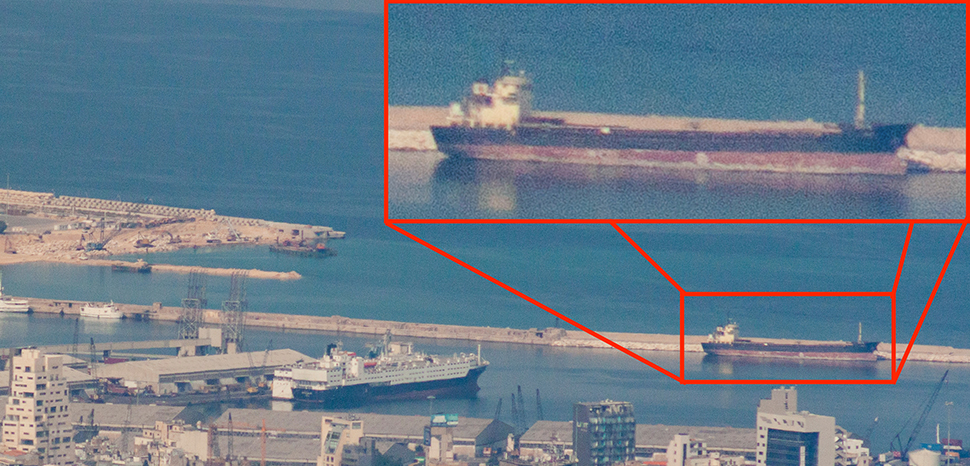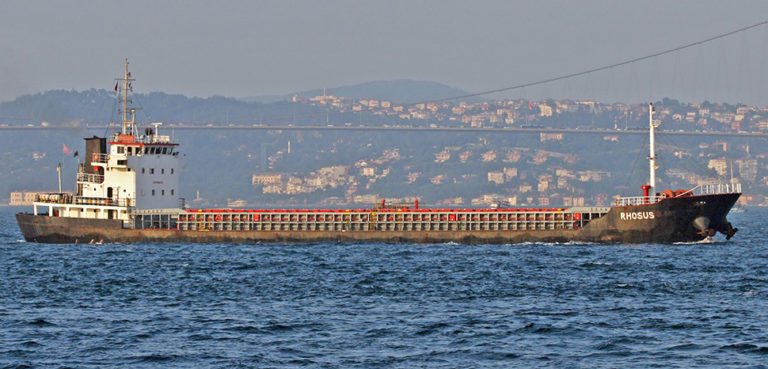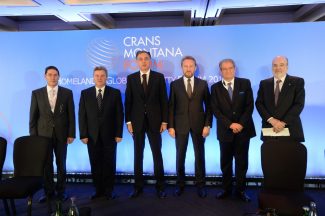In the year after the explosion, while consistent political meddling further suppressed the domestic investigation, inquiries were relentlessly conducted by investigative media outlets, advocacy organizations, and international rights groups that uncovered new findings and presented a fuller picture of the events that led to the August 4 port explosion. Accessing more data, obtaining additional documentation, conducting interviews, and gathering witness testimonies led to a more comprehensive and vigorous analysis of the explosion. Some investigations questioned alleged links between various officials and offshore trade. Other reports claimed Lebanese officials’ responsibility while producing analysis and guidance highlighting matters of law and issues of justice and explaining the victims’ rights.
Forensic Architecture’s Investigation
London-based human rights research agency Forensic Architecture (FA) conducted an open-source investigation of the explosion in November 2020, employing geolocation analysis and creating a 3D model timeline reconstructing the sequential events of the explosion. FA has established a worldwide reputation for its forensic architectural analysis and is often commissioned by courts, NGOs, and regional and international organizations to undertake investigations. It primarily utilizes architecture and 3D modeling to investigate war crimes and human rights abuses.
By examining videos, photographs, and source material cited by media and research organizations, the geolocation analysis helped analyze where the fire in the warehouse began. With the help of a UN explosives expert, FA identified four types of smoke plumes originating from different parts of the warehouse within 14 minutes, including initial fire stemming from unidentified materials, smoke generated by small explosives, most likely fireworks, and later, a larger fire and plumes emanating from the detonation of ammonium nitrate.
The geolocation analysis also helped map and identify the location of the hundreds of ammonium nitrate bags stored in the warehouse. FA analyzed photos and videos gathered by various media and organizations and identified the arrangement of the various reportedly additional goods lying inside, including fireworks and car tires and a sizeable container lying next to the ammonium nitrate bags.
Through mapping all materials stored in the warehouse and citing international standards for ammonium nitrate storage, FA concluded that the Lebanese state’s negligence in storing the explosives led to the explosion.
Legal Action Worldwide’s Report
Ahead of a Security Council briefing on Lebanon in November 2020, legal advocacy organization Legal Action Worldwide (LAW) submitted a report on behalf of the victims of the Beirut explosion to the United Nations and member states. This primarily concluded that it was necessary to establish an independent and impartial fact-finding mission into the explosion to bring justice to the victims and establish accountability, given the lack of judiciary independence in Lebanon compounded by a pattern of corruption and victim/witness intimidation. According to LAW, by then, there was a large number of available facts and information to conclude that the explosion could have been avoided had key individuals and institutions acted. LAW’s report drew on the testimony of victims/witnesses and the UN’s, NGOs’, and media reports and was by then the most extensive report on the explosion.
The report provided a detailed background on the handling of the Rhosus ship at Beirut port. For instance, LAW analyzed the initial official correspondence pertaining to the dangerous cargo and highlighted the key state and judicial institutions, including officials who were aware of the danger. The report also described the administrative responsibilities of these institutions and noted the two investigations that were conducted by far over handling the dangerous cargo prior to the explosion.
The report described the progress of the Lebanese investigations to that time, highlighting its failures. It included a detailed description of the investigations led by the Lebanese authorities, with the resulting arrests and charges. It also described the functions of the various units that carried out the investigations. However, the report noted the various inadequacies that surrounded the Lebanese investigation proceedings, mainly allegations of a lack of objectivity and suitability in the process of selecting an investigative judge, the absence of transparency about the ongoing investigation, and political meddling.
The report outlined the shortcomings of the Lebanese justice system. LAW cited several UN reports raising concerns regarding the impartiality and independence of Lebanon’s judiciary from as early as 1997, and quoted, for example, multiple passages of such reports with observations questioning the independence of various Lebanese judiciary institutions, including the Judicial Council, the Higher Council of the Judiciary, and the Military Tribunal.
LAW also discussed the legal framework applicable to the explosion investigation and its victims. At the national level, it named the legal texts and provisions that pertain to human rights, including the Lebanese Constitution and Penal Code, as well as Lebanese laws that provide guards against corruption. The report also cited the international legal framework that applies in the context of the explosion inquiry and the victims’ rights, including the Universal Declaration of Human Rights, the International Covenant on Civil and Political Rights, and the United Nations Convention against Corruption, among others, noting Lebanon’s obligations to abide by these instruments.
The report analyzed the impact of the explosion on the economy, society, and communities and included a detailed chronology of events relating to the Beirut explosion from 2014 to November 2020.
OCCRP’s and Al Jadeed’s Subsequent Investigations
A second investigation by OCCRP in September 2021, published almost a year after the explosion, sought to further investigate the intermediary purchase of the ammonium nitrate cargo and to uncover the ultimate ownership. While the general narrative about the cargo’s purchase initially focused on the Mozambican FEM (in line with Rhosus’ shipping documents), OCCRP stressed Savaro Ltd.’s alleged role in the shipment operation and concluded that Savaro Ltd. owned the shipment. According to OCCRP, Savaro Ltd. was part of a network of shell companies involved in chemical trading run by Ukrainians and was owned by Volodymyr Verbonol and his partners.
Additionally, OCCRP cited an earlier investigation by Firas Hatoum, a Lebanese investigative journalist working for Al Jadeed and who also collaborated on OCCRP’s investigation. According to Hatoum’s investigation, Savaro Ltd. is a shell company that shares UK addresses with companies associated with prominent Syrian-Russian businessmen who have been sanctioned by the US government for providing support to the Syrian regime. Hatoum’s investigation also referenced a 2014 report by Ernst & Young indicating that the Syrian-Russian businessmen were major clients of FBME Bank Ltd.
Human Rights Watch’s Investigation
Human Rights Watch (HRW) published its investigation into the Beirut port explosion on August 3, 2021, marking the first anniversary of the blast. HRW’s report contains over 700 pages and is the most comprehensive investigation into the explosion to date. HRW found that evidence suggested that multiple Lebanese authorities were criminally negligent under Lebanese law over their handling of the ammonium nitrate cargo. HRW also contended that officials endeavored to circumscribe the domestic investigation. HRW concluded its investigation by calling for an independent and impartial fact-finding mission into the explosion to be established.
The report included a brief description of its information and evidence-gathering research methodology. HRW compiled over 100 documents and correspondence between Lebanese officials, judiciary members, and security officers. It conducted numerous interviews with government, security, and judicial officials, as well as lawyers, researchers, and impacted sources. The report also included research conducted by investigative journalists and independent researchers, including the Al Jadeed Investigative Unit, the Samir Kassir Foundation, and Forensic Architecture.
The report analyzed the events surrounding the arrival of the Rhosus to the port of Beirut. Particularly, HRW questioned the fact whether the ammonium nitrate on board was bound for Mozambique or if it was intended to remain in Beirut – citing several aberrations regarding the arrival and the handling of the cargo at the port, including the opaque ownership structure of both the Rhosus and its cargo, the poor condition of Rhosus, the mischaracterization of the explosive classification, and the irregularities committed with the discharge of the ammonium nitrate in the port’s hangar.
Drawing on official correspondence, HRW reported that it found evidence that omissions and actions by officials caused the explosion. For instance, the report underscored that Beirut port’s administration was a shared official responsibility between the Ministry of Finance – which oversees the Port Authority – and the Ministry of Public Works and Transport – which oversees the Customs Administration – while also noting that evidence suggested that senior political, military, and security officials were aware of the danger posed by the cargo and tacitly accepted the risk. According to HRW, officials at the Ministry of Public Works and Transport have not only failed to investigate the risks presented by the ammonium nitrate, but they have also failed to store it in a secure manner; additionally, HRW concluded that while the Ministry of Finance officials kept engaging in the same procedural errors in their attempts to sell or re-export the ammonium nitrate, they failed to employ their authority to remove the cargo. HRW also concluded that there was strong evidence to suggest that officials of the Lebanese Army, the State Security, the Higher Defense Council, and the Ministry of Interior and Municipalities were aware of the danger posed by the cargo but failed to act in a responsible way to prevent the explosion.
The report stressed the failure of the Lebanese domestic investigation, underscoring its structural flaws and noting that while several charges have been issued, mostly mid-to-low-level officials were detained – except for the heads of the Customs Administration and Port Authority. These various shortcomings include:
- HRW underscored the lack of the judiciary’s independence, the Lebanese officials’ enjoyment of legal immunity, the prosecutorial limitations, and the various due process violations that marked the investigation.
- The report cited several systemic shortcomings, whether pertaining to the powers and functioning of the Judicial Council, the contentious appointment of the judicial investigator, or the financial dependence of the Higher Judicial Council on the executive, among others.
- HRW also chronicled the various consequential proceedings of the investigation up to the date of the report’s publication, including the charges brought against the officials allegedly involved in the explosion, the appointment of a successor judge to the case on suspicions of impartiality, the numerous judicial requests submitted seeking lifting officials’ immunities and permissions to prosecute high-level security officials, as well as pointed to the obstacles to the investigation raised by officials claiming immunity, and the parliamentary divides over the immunities question.
- According to HRW, several due process violations were committed during the investigation, such as the issuance of vague charges without invoking evidence, suspects’ detentions before arrest warrants were issued, and excessive surveillance measures, among others. The report also pointed to a number of “suspicious” deaths believed to be connected with the investigation of the explosion.
Additionally, the report analyzed and stressed international human rights laws’ applicability and its prevalence over Lebanese domestic law, particularly the right to life, in the context of the port explosion and its investigation. It included over 200 mostly official documents in annexes and texts and an extensive chronology of events relating to the Beirut explosion from September 2013 to August 2020.
International Lawsuits
Along with investigations conducted by media and advocacy groups and amid calls for a UN investigation, civil lawsuits were also filed overseas to circumvent the stalled Lebanese investigation and in the hope of bringing justice to the victims. There is no doubt that these lawsuits drew heavily on research and findings presented by media outlets and international advocacy organizations.
To date, two major international civil lawsuits have been filed, one in the UK by the Beirut Bar Association (BBA) against Savaro Ltd. in August 2021 and another by victims of the port explosion against the US-Norwegian geophysical services group TGS in Texas in July 2022. The lawsuit in the UK was ruled in February 2023 in favor of the victims, while the lawsuit in Texas is still ongoing.
Relatedly, according to multiple media reports, BBA previously filed hundreds of lawsuits on behalf of the explosion victims in domestic Lebanese courts.
BBA’s Lawsuit
BBA, along with victims of the Beirut port explosion, filed a civil lawsuit at the UK’s High Court of Justice against UK-registered chemical company Savaro Ltd. in August 2021 over its alleged involvement in the explosion. BBA sought damages and indemnification from Savaro Ltd., alleging that Savaro Ltd. failed to act to properly secure or dispose of the ammonium nitrate which caused the explosion. BBA claimed the ammonium nitrate was owned and supplied by Savaro Ltd. In January 2021, BBA sought from British authorities to prevent Savaro Ltd. from starting liquidation proceedings, claiming that Savaro Ltd. was indicted in a domestic investigation into the explosion led by investigating judge Fadi Sawan. In June 2022, The UK’s High Court of Justice issued a court order compelling Savaro Ltd. to reveal its beneficial owners. In February 2023, the court issued a ruling against Savaro Ltd. finding the company liable for the damages caused to the victims. In its latest development, in June 2023, the court ordered Savara Ltd. to pay more than 800,000 pounds (USD 1 million) in damages to the victims.
Victims’ Lawsuit
In July 2022, nine victims of the Beirut port explosion filed a civil lawsuit in the District Court of Harris County in Texas against Texas-based TGS ASA and TGS-NOPEC Geophysical (collectively known as TGS) over allegations of involvement in the explosion. As noted above, the action is ongoing. The plaintiffs, all of whom are US citizens and US green card holders and who were assisted by the Swiss foundation ‘Accountability Now,’ sought $250 million in damages for the loss of human life and property damage. The plaintiffs alleged that TGS, which owns the UK-based seismic surveying company Spectrum ASA (Spectrum) that chartered the Rhosus that delivered the 2,750 tons of ammonium nitrate to Beirut, is liable for the damages caused by the detonation of the ammonium nitrate in Beirut port. TGS denied the allegations claiming that Spectrum had no responsibility for the explosion.
- According to the lawsuit’s allegations, Spectrum hired Jordanian company Geophysical Services Center (GSC) as a subcontractor to move surveying equipment back to Jordan, as GSC owned the equipment. Spectrum was a contractor with the Ministry of Energy and Waters in Lebanon from 2000 to 2014 to conduct seismic surveys of Lebanese territorial waters.
- The plaintiffs raised several arguments in support of their claim, concluding that the Rhosus’ selection to pick up heavy seismic equipment from Beirut port “never made sense” and further suggesting there was no intention of loading the seismic equipment onto the ship. The plaintiffs cited experts’ reports that the Rhosus had a reputation for being unseaworthy and was already over capacity with 2,750 tons of ammonium nitrate on board when it was ordered to pick up the heavy surveying equipment. The plaintiffs also alleged that GSC was an unqualified subcontractor with no local expertise, initially set up by members of the Jordanian Samara family and former employees of the Jordanian state-owned entity Natural Resources Authority, to merely act as an intermediary “assisting foreign companies in their dealings with the Jordanian ministry of energy.”
- The plaintiffs’ petition also highlighted two political contexts that marked the events that led to the Rhosus’ selection and the ammonium nitrate being offloaded at Beirut port. According to the plaintiffs, Spectrum’s contracts with the Lebanese Ministry of Energy and Waters operated within a deeply corrupt Lebanese political environment, including then-existing oil corruption schemes between Spectrum and the ministry. Second, the plaintiffs claimed that ammonium nitrate was an explosive used frequently in the Syrian civil war next door and raised questions about whether the ammonium nitrate cargo was intended to end up in Syria instead of Mozambique.
- Most notably, the plaintiffs sought to prove that by failing to conduct sufficient due diligence on its subcontractor GSC, Spectrum failed to meet appropriate international regulations pertaining to its industry and therefore was responsible for the selection of Rhosus that was carrying the ammonium nitrate. The plaintiffs alleged that as the owner of Spectrum, TGS assumed its liabilities. TGS denied the allegations claiming that “Spectrum has acted diligently in its conduct of the survey and bore no responsibility for the explosion.”
**This article is third in a three-part series examining the Beirut port explosion:
Part one examining domestic investigations can be found here.
Part two examining early international investigations can be found here.
Rany Ballout is a Director at Hilton Global Associates, a global risk management firm specializing in investigative due diligence and actionable intelligence. He is a political risk and due diligence analyst with extensive experience in the Middle East. He holds a Master’s degree in International Studies from the University of Montreal in Canada and a bachelor’s degree in Linguistics from Uppsala University in Sweden.




